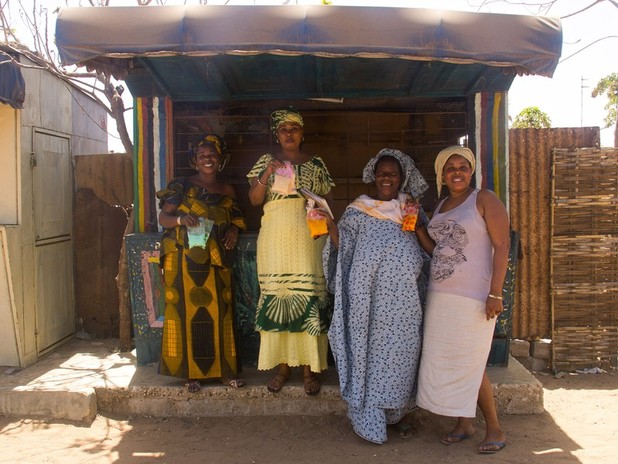June 10, 2014
IDEO.org, working to design solutions in Senegal to address food spoilage, prototyped post-harvest business solutions with local farming communities.
We met with a group of five women in Thiess, Senegal, through Peace Corps volunteer Joyce Lee while working on post-harvest loss for smallholder farmers in sub-Saharan Africa. This group had tried to start a juice operation using fruit that would otherwise spoil with 35 women last year, but it failed for a variety of reasons.
What we did
We decided to give the group of five women some seed capital to start the project again, allowing them to learn from their mistakes the first time around. This time they elected to try a smaller group and to run their operation as a business so they could share the profit. We gave the women 10,000 CFA (~$20 USD) and we told them they needed to make all decisions as a group. We also asked them to document what the money was used for and keep a journal about what happened. Within four days, the group bought the raw materials they needed, secured a space to sell from, set up a refrigerator and packaging operation, and had started to generate a profit!
What you’ll need
A group of people who trust each other and is ready to roll their sleeves up. These women were ready to take on a new business.
They were also great candidates because of their skills. Juicemaking is no easy task, but these ladies were already trained in how to make juice and could build on this prior knowledge.
What we learned
The group chose to do the project in a small group of five, which allowed them to manage decisions. They all knew each other and had a high level of trust for one another. They carefully monitored the composition of the juice—last time they used too much sugar so they were not making a profit with each packet sold. Finally, when they were doing the juice in a large group, the profits were fed back to the organization, and the individuals were never paid for their efforts. With the current business, they know they will profit, so they are giving it their all.
Why it counts
We have noticed that with farmers, many times when a solution fails, they do not try again. By removing the initial cash outlay for these women with just $20, we were able to show them that there are multiple ways to process their spoiling fruit, and that they could iterate and learn from past mistakes.



